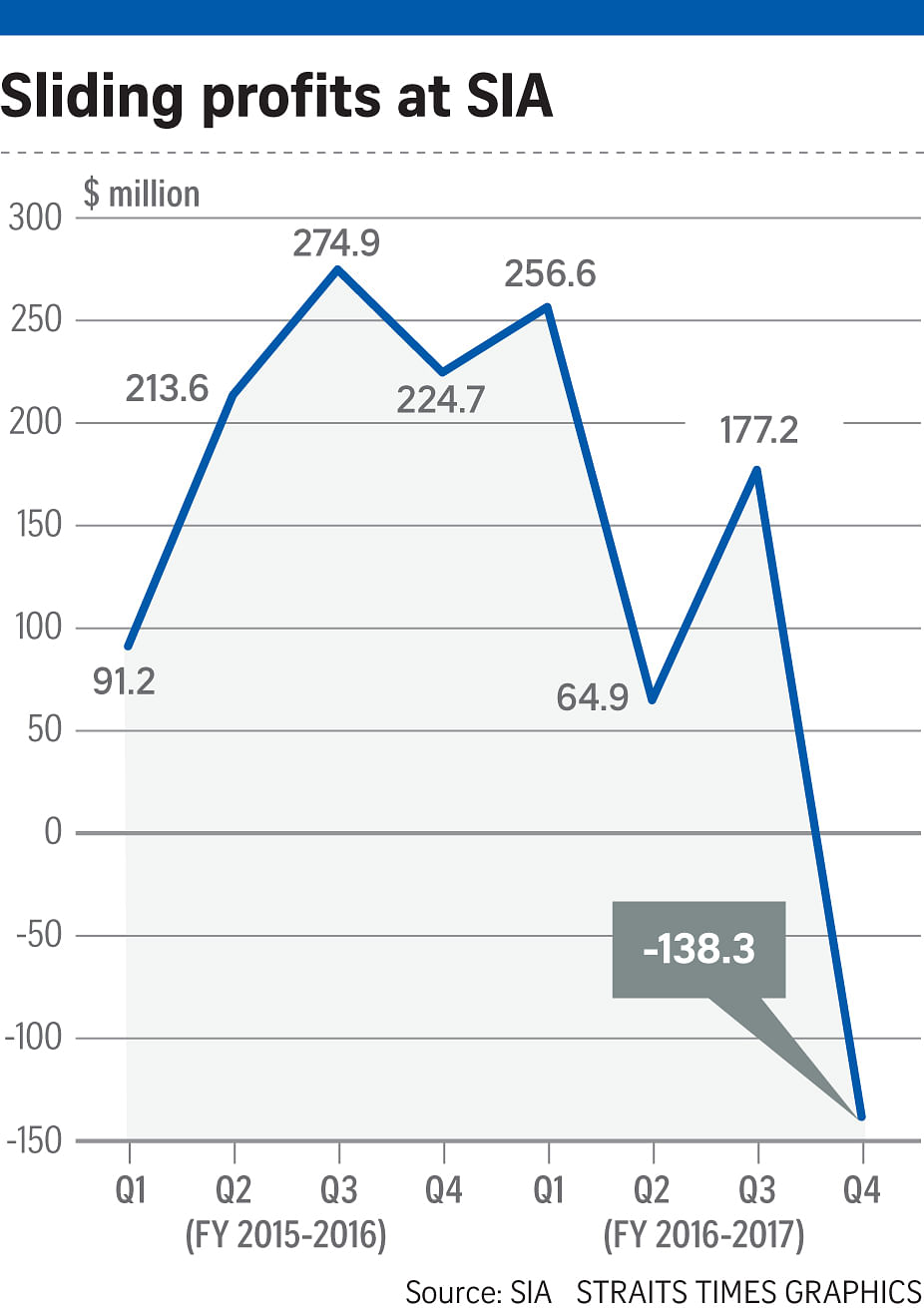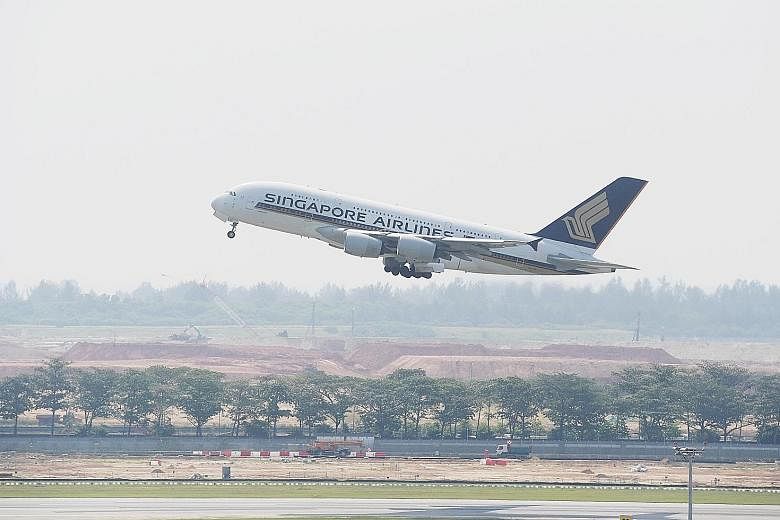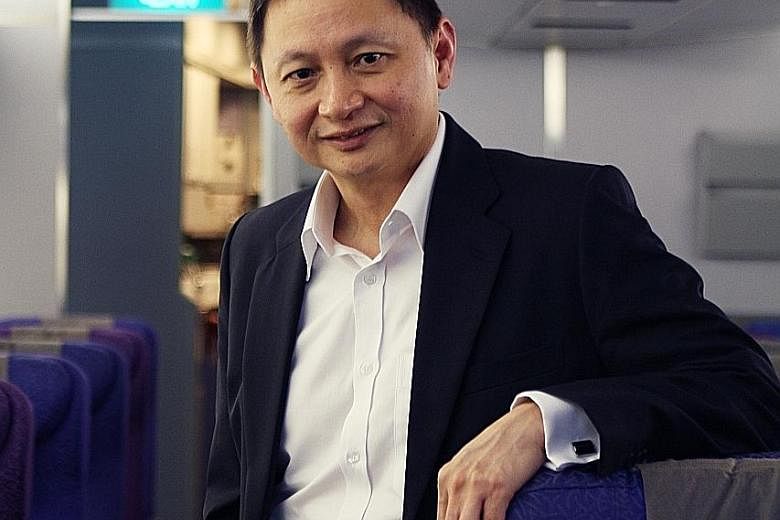Singapore Airlines (SIA), which turns 70 this year, is undertaking a major review of its business and is open to shifting the balance of power away from its trademark premium carrier to its regional and budget airlines.
Speaking to reporters and analysts a day after SIA reported a $138 million loss between January and March - its first quarter in the red in five years - chief executive officer Goh Choon Phong said the airline will do what it must to ensure the company's long-term viability.
"Bold actions" will be taken, he said, as the airline embarks on a major review that will cut across all its operations, including staffing, fleet and network development, and products and services.
When asked by The Straits Times if SIA is prepared to downsize the premium airline and pour more resources into its budget arms Scoot and Tigerair, Mr Goh said: "If that is the outcome (of the review) and if it is clear that is the way we have to operate in the long term, we will not rule it out."
However, he added, there will always be demand for premium products in certain markets.
The review, led by a new Transformation Office, will also look at jobs. While the review is not setting out to cut jobs, some positions will become redundant, he said.
"There will certainly be changes in the way we do things and staff would have to pick up new skills... The company will look at how best to support their retraining and redeployment," Mr Goh added.
The changes have started already, with SIA's announcement yesterday that SIA Cargo, its wholly owned subsidiary, will be re-integrated as a division within the group.
The process, aimed at improving efficiency, is expected to be completed in the first half of next year.
Most of SIA Cargo's nearly 900 employees will be retained in the new cargo division, while some will be transferred to other divisions, said Mr Goh.

The review will not impact customers, he said. They can be assured that they will always be at the centre of whatever the airline does.
With profits slipping in the last few years because of intense competition from other long-haul premium carriers such as Emirates and Qatar Airways, as well as high fuel costs, SIA has taken steps to broaden its portfolio.
To position the group for growth in the budget and regional markets, SIA took a stake in budget carrier Tigerair, which was set up in 2003, and now owns the entire airline.
In 2012, SIA's long-haul budget airline, Scoot, launched its first flight.
For the financial year which ended in March, the passenger carriers within the group recorded an operating profit of $554 million, with about 70 per cent, or $386 million, coming from the parent airline and the remaining 30 per cent coming from SilkAir, Tigerair and Scoot.
A year ago, the split was about 80/20.
SIA is not alone in reporting sliding profits. Cathay Pacific has embarked on a three-year revamp to cut costs after reporting its first full-year loss of HK$575 million (S$103 million) in eight years, while Emirates reported earlier this week that profits plunged 82 per cent to $492.2 million for the 2016-2017 financial year.
Mr Brendan Sobie, analyst at think-tank Centre for Aviation, said the short-term outlook for SIA is rather bleak.
"I think pressure on profits will continue to intensify. What we saw in the January to March quarter marks the beginning of a new cycle," he said.
On a positive note, however, Mr Sobie added that SIA is taking the right steps and has "done a lot" to adapt to the structural changes in the marketplace.



